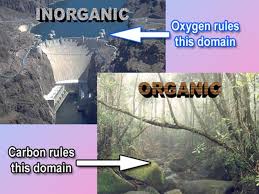
记忆方法
将“inorganic”分解为“in”和“organic”,想象没有“organic”(有机的)成分的“in”(在内/不),因此“inorganic”表示“非有机的”。可以通过一个场景来辅助记忆,比如一个生物学家正在研究“in”一个“organic”样本,而旁边有一个完全由元素组成的“inorganic”矿物质。这样的对比可以帮助区分这两个概念。
以上内容由AI生成, 仅供参考和借鉴
中文词源
inorganic 无机的
in-,不,非,organic,有机的。
英语词源
- inorganic (adj.)
- 1794, "without organized organic structure," from in- (1) "not, opposite of" + organic. Sense of "not arriving by natural growth" recorded from 1862.
权威例句
- 1. The fundamentals of inorganic chemistry are very important.
- 无机化学的基础很重要.
- 2. The acidtreated packing causes release of co 2 from inorganic carbonates.
- 酸化处理过的填料会使co2从无机碳中释放出来.
- 3. Most, if not all fungi can dispense with inorganic sources.
- 即使不是全部亦是大多数真菌可省去无机氮源.
- 4. Both inorganic and organic surfaces constitute the soil adsorption complex.
- 无机和有机表面组成土壤吸附复合体.
- 5. Rocks and minerals are inorganic.
- 岩石和矿物都是无机物.